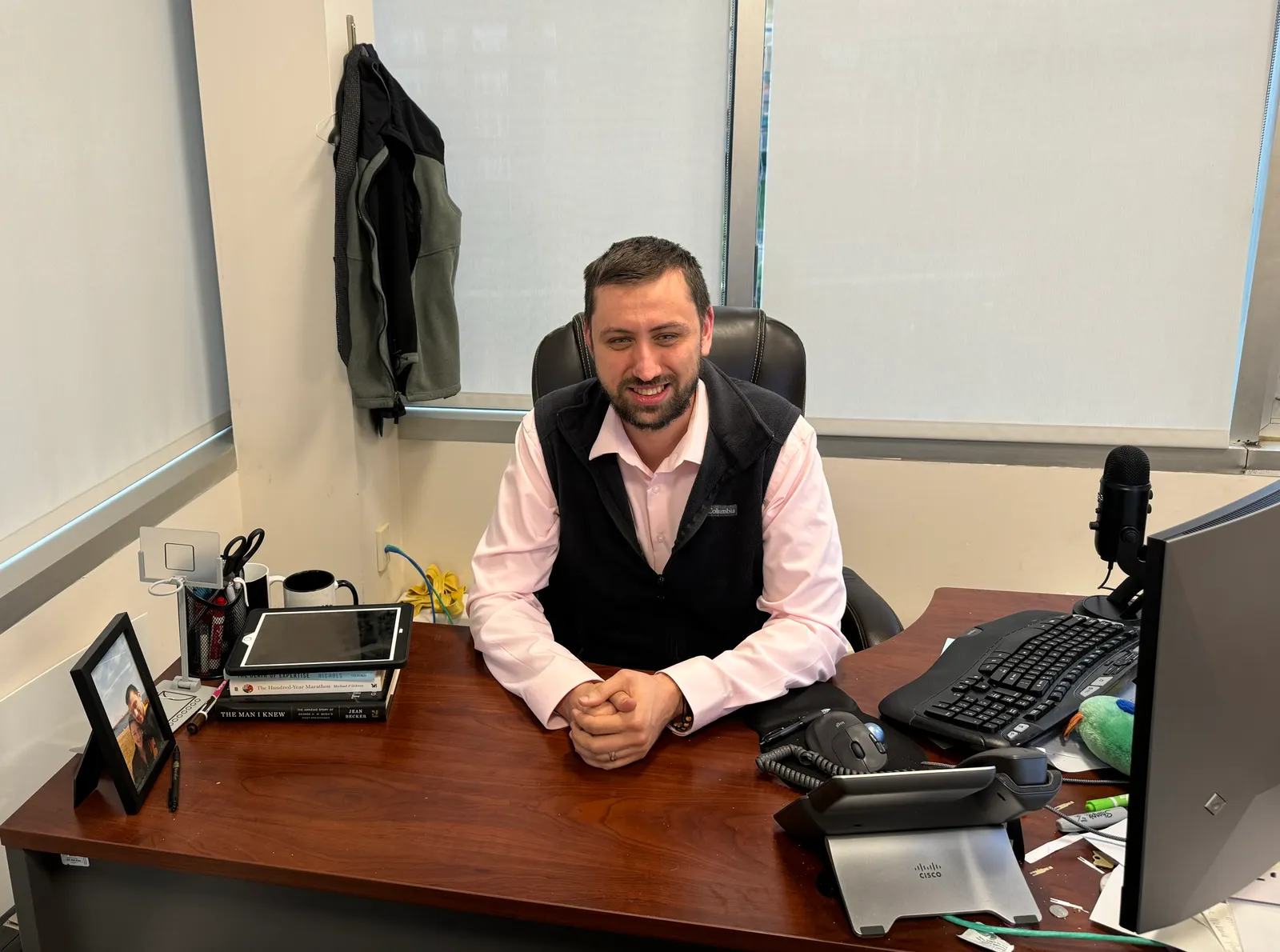Eric Mason calls himself “the accidental CFO.” Named chief financial officer of his hometown of Quincy, Massachusetts, at just 26 years old during the onset of the COVID-19 pandemic, he found himself navigating his first formal leadership role under extraordinary circumstances.
Mason went on to spend more than 10 years with the city, gaining firsthand experience in public finance, municipal oversight and the unique demands of serving both taxpayers and elected officials. The role gave him a front row seat to balancing budgets while managing accountability to multiple stakeholders.
Now, Mason has taken on a new chapter as CFO in the state and local government consulting sector at accounting firm CliftonLarsonAllen, drawing on his years in city government to advise municipalities on finance, governance and accountability. His path reflects the broader journey of finance leaders who take lessons learned in the public sector and apply them in advisory work, where the challenges are different but the stakes remain high.
Eric Mason

CFO of Client Accounting and Advisory Services, State and Local Government, CLA
First CFO Position: 2020
Notable previous employers:
- City of Quincy, Mass.
- DataBloc
This interview has been edited for brevity and clarity.
ADAM ZAKI: At Quincy, there was never really an onboarding process for you because of the pandemic. Now, at CLA, you’ve gone through onboarding at one of the largest accounting firms in the country. What was it like?
ERIC MASON: At the City of Quincy, I came in during the pandemic, so it was a naturally different process. Nothing wrong with that, but I spent a lot of time reaching out to independent experts, reaching out to colleagues and peers at different state agencies for guidance. Regulations were changing, the world had shifted, so I needed to rely on outside advice to figure out this internal role.
At CLA, the onboarding process has been very proactive. While onboarding, they were answering questions before I even realized I had them. Everything from internal systems management to how to log work time was built into a game plan. I was impressed.
One of the coolest parts was that they pre-scheduled meetings not just with my team but with others who hold CFO roles across our client consulting and advisory organization, even in other states. I met a colleague at a similar CFO function in Minnesota and another in Rhode Island. Those conversations had no agenda. It was just, here’s someone who does your job, [now] ask them what you want. That gave me perspective on the nitty-gritty day-to-day, the things you can’t put on paper.
So, you, like these other CFOs, are fractional CFOs in consulting-type roles?
Exactly. I work in state and local government, specifically on the client accounting and advisory services side. SLG splits broadly into assurance/auditing and client accounting and advisory services.
For our clients, I will explain assurance and auditing as your doctor: applying universal standards, benchmarks and broad data. Auditing is the science of measurement. Client accounting and advisory services, on the other hand, are like a personal trainer. Everyone wants to be healthy, but goals differ: Do you want to run a marathon, squat 600 pounds or adopt new technology? Client accounting and advisory services help you reach that specific goal.
So, my role is CFO-style but on a recurring basis for any number of clients. We’re not in and out; we stay with clients long term. I provide the advice a CFO within the organization would. And I love it because I’m talking to municipal finance directors, people I once was on the other side of the table from. I know what they want to hear, what advice they need, and I get to deliver that.
We have everything from associates to principals, and our principals are heavily involved. They often have long relationships with clients, and that lets me step in with CFO-level advice. The firm also stresses responsiveness — getting back in hours, not days. Much of what I do is similar to past roles: stabilization funds, policies, procedures. But now I’m applying that expertise across multiple municipalities.
Were you aware that this type of role was out there before you started the interview process?
No. That’s what attracted me. I didn’t even know this existed. I knew about controllers and assistant controllers, but I’d never heard of a recurring CFO role like this, kind of like a fractional CFO, but ongoing. I love troubleshooting, and this lets me do that. When I learned more about the role and talked to the principals and leadership, I thought, this is a unique door that might never open again.
In your old job, the mayor of Quincy was two doors down from your office. Now you’re in a large, client-facing organization. How do the communication demands of each role compare?
The scale is different. As an internal CFO, 90 percent of your work is the routine — payroll, AP, keeping things moving. Specialization drives value. I’m not managing those internal processes. I’m focused on solving specific problems for clients.

I enjoy that. Our clients come to us with pain points: we need to update this, optimize that. We can devote resources to solving it, leave behind recommendations, and then move on. Since it’s recurring client accounting and advisory services, they’ll call back, and we keep working. It’s a higher density of problem-solving, which is what I’ve always liked.
How many clients can you juggle at a time?
It depends. In Massachusetts, we have several dozen. Right now, I’m heavily involved with seven or eight. Because of the way we organize, I can focus on CFO-level issues while teammates handle other aspects. That lets me scale. I could be managing up to 15 clients at once because there may be 15 CFO-type issues at one time.
It’s also cost-effective. Not every client can afford a full-time CFO. But they can afford five to 10 hours of CFO expertise. That’s especially important as retirements increase and the supply of finance directors shrinks.
Is it part of your role to recruit clients?
It’s market-based. When I posted about my new role on LinkedIn, town administrators and finance directors reached out to me directly. CLA has an excellent reputation, especially in Massachusetts, and recurring client accounting and advisory services for municipalities is a very narrow market. Sometimes another office will ask me to sit in because a client is Massachusetts-based.
There’s strong demand. A lot of it is just getting the word out — at conferences, meetings or even on LinkedIn. People hear what we offer and want that specific help. Often, it’s more affordable and effective than hiring full-time.
You had a strong, personal connection to your previous role. How did you leave Quincy the right way?
The people matter most. I was born and raised in Quincy. The mayor and the team knew this was coming. We had built a strong finance team. Leaving wasn’t going to set them back.

It felt like the right time. The mayor couldn’t have been more supportive. He was proud and happy for me. It’s sad to leave people you saw every day, but this was a once-in-a-lifetime opportunity that I had to take, and I am so grateful to be here, but also incredibly grateful for the opportunity I had at the City of Quincy.
What themes are you advising municipal CFOs to watch this year?
Interest rates, interest rates, interest rates. Timing and sequencing capital projects is critical. You don’t want to be on the wrong side of a rate cut, but you also don’t want to move too early. What matters isn’t just the Fed’s statement, but how the market prices it in. If you have a large project, you need to model scenarios and be prepared.
In Massachusetts, we also have Prop 2½ levy limits. Inflation was 9 percent-plus, but towns could only raise levies 2.5 percent plus new growth. Costs jumped, revenues didn’t. That creates stress. We’re helping towns think not just about this year but the next several years — whether an override may be needed, how to manage growth, how to plan. Having lived that at Quincy, those conversations are very familiar.
You just took the biggest job of your career right before you become a father for the first time. How do you plan on being great at both?
I signed my CLA offer, and the next day, my wife had a positive pregnancy test. It was a lot at once.
I believe it comes down to expectation setting. I’m going to make mistakes, and I accept that. But I’ll learn, and I won’t repeat them endlessly. I’ve had great role models in my parents and in marriage. I’ve always been a quick study, and this will put that to the test.
The firm knows, and they’ve been supportive. My team is full of parents. People share baby pictures in meetings. They even have CLA onesies. It feels like the right environment to take on both challenges.





